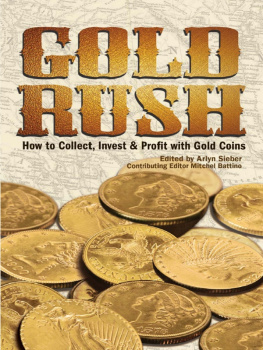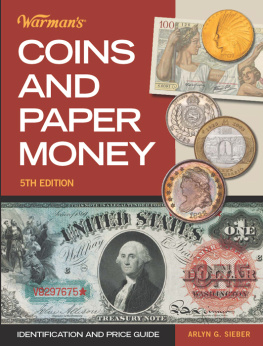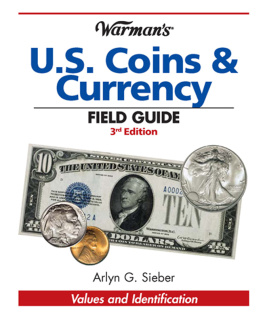Second-Rate Nation
By the Same Author
Organizing Educational Research
(with Paul F. Lazarsfeld)
Reforming the University: The Role of the Research Center
The School in Society: Studies in the Sociology of Education
(with David E. Wilder)
Bureaucracy and the Dispersed Organization
(with Karen Seashore Louis)
Fatal Remedies: The Ironies of Social Intervention
A Gathering of Giants: The Intercultural Invention of Western Civilization in the Middle East and Europe (forthcoming)
SECOND-RATE NATION
FROM THE AMERICAN DREAM TO THE AMERICAN MYTH
SAM D. SIEBER
First published 2005 by Paradigm Publishers
Published 2016 by Routledge
2 Park Square, Milton Park, Abingdon, Oxon OX14 4RN
711 Third Avenue, New York, NY 10017, USA
Routledge is an imprint of the Taylor & Francis Group, an informa business
Copyright 2005, Taylor & Francis
All rights reserved. No part of this book may be reprinted or reproduced or utilised in any form or by any electronic, mechanical, or other means, now known or hereafter invented, including photocopying and recording, or in any information storage or retrieval system, without permission in writing from the publishers.
Notice:
Product or corporate names may be trademarks or registered trademarks, and are used only for identification and explanation without intent to infringe.
Library of Congress Cataloging-in-Publication Data
Sieber, Sam D.
Second-rate nation : from the American dream to the American myth / Sam D. Sieber.
p. cm.
Includes bibliographical references and index.
ISBN 978-1-59451-090-8 (hc) ISBN 978-1-59451-091-5 (pbk)
1. Quality of lifeUnited States. 2. United StatesSocial conditions21st century. 3. United StatesEconomic conditions21st century. 4. Public healthUnited States. 5. Civil rightsUnited States. 6. EducationUnited States. 7. United StatesPolitics and government21st century. 8. United StatesEnvironmental conditions. I. Title.
HN60.S54 2005
306.0973dc22
2005015673
Material from Robert A. Dahl, How Democratic Is the American Constitution? (New Haven: Yale University Press, 2002), reprinted with permission from the publisher. Copyright 2002 by Yale University.
Material from Thomas Powers, Intelligence Wars: American Secret History from Hitler to Al-Qaeda (New York: New York Review of Books, 2002), reprinted with permission from The New York Review of Books. Copyright 2002 NYREV, Inc.
Designed and typeset by Jack Sieber.
ISBN 13: 978-1-594-51090-8 (hbk)
ISBN 13: 978-1-594-51091-5 (pbk)
To
my family and friends whose encouragement and
assistance have made it possible for me to
prepare this book
and
the loving memories of
David Caplovitz and Robert Alford
The United States is the single surviving model of human progress.
George W. Bush, President
We are loathed, and I think the world has every right to loathe us, because they see us as greedy, self-interested and almost totally unconcerned about poverty and suffering.
Frank Griswold, Presiding Bishop
of the Episcopal Church
American power and influence are actually very fragile, because they rest upon an idea, a unique and irreplaceable myth: that the United States really does stand for a better world and is still the best hope of all who seek it.
Tony Judt, The New York Review of Books
Contents
I am indebted above all to several members of my family who not only believed in the value of the book in progress but participated in bringing it to fruition. Mary Sieber was an ardent editor who drew upon her many years of book editing, particularly of technical and scholarly works, to make my book as literate, accurate, and up to date as possible given my rather haphazard writing and clerical styles. My brother, John, also played an editorial role, but more as an intellectual gadfly, scrutinizer of ideas and arguments, and watchdog of tone and equanimity. My nephew Jack volunteered to perform the wizardry of converting a misshapen work into an attractive, electronic, camera-ready format in collaboration with the publisher and also provided unflagging assistance in overcoming many computer-related problems in preparation of the manuscript. Another nephew, Todd Fredricks, facilitated my perilous transition from printed matter and 3x5 cards to the computer through donation of his replaced equipment, basic instructions in its use, and constant readiness to give advice. My niece Anns assistance with the lengthy index was indispensable at a critical time, and her efforts to publicize the book through her friends and professional contacts are also greatly appreciated. Caroline Persell and Lynette Stone offered valuable information and advice pertaining to certain parts of the book; and Judy Campbell and Ron Nyburg kept me supplied with numerous articles from the media bearing on a range of topics. Without the help of all those named above, the final product would have suffered greatly. Finally, several former colleagues, including Frances Fox Piven, Herbert Gans, Catherine Bodard Silver, and Seymour Spilerman, were helpful in my search for a publisher or agent, for which efforts I am very grateful.
The selection, treatment, and interpretation of the data, as well as all conclusions and opinions, are, unfortunately, entirely my own responsibility.
Sam Sieber is a retired Senior Research Associate and Lecturer on the Graduate Faculty of Columbia University (with stints at New York University and other institutions of higher education) where he was a Program Director at the Bureau of Applied Social Research. He was also a frequent adviser to the National Institute of Education and numerous other educational agencies across the country, federal evaluator of university and regional R&D centers, published author of five books and numerous professional articles and research reports on social theory, research methods, the organization of R&D centers, policy research, labor economics, and school systems, and a forthcoming book on ancient history. In addition, he founded and served for several years as Executive Director of a community action agency that dealt with crime, drug abuse, and mental illness.
For thirty years he homesteaded on a Caribbean island while studying and writing history and sociological works. Second-Rate Nation is his first major work to be published after returning from the island in 1999 and discovering the research and publication potential of the Web.
He is presently residing in Texas where he was born and raised, and his free time is spent composing and playing the piano. His doctoral degree was received from Columbia University in the discipline of sociology.
In 1999 I moved back to the States after living and studying elsewhere for nearly 30 years. During those years, my knowledge of current affairs in America was drawn from only a few mainstream media sources. Moreover, my short, occasional visits to my family in Texas, where I was born and raised, and to Washington, D.C., where I periodically consulted for the National Institute of Education, afforded only limited opportunity to bring myself up to date. Consequently, I was unprepared for what I discovered when I resumed residence after a lapse of many years. As I read, watched, and listened to media reports, I detected signs of multiple fractures in the body politic. And when my curiosity prompted me to delve beneath the superficial news of the mainstream media by recourse to the Internet, these signs grew to alarming proportions.








